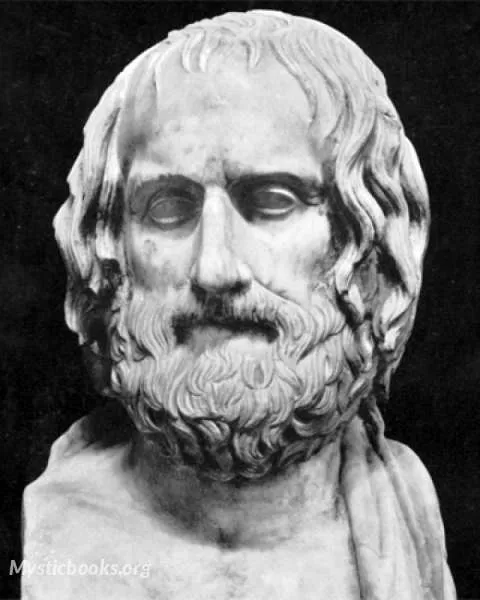
Timeline
Title
Country/Nationality
Euripides
Euripides was a tragedian of classical Athens. Along with Aeschylus and Sophocles, he is one of the three ancient Greek tragedians for whom any plays have survived in full. Some ancient scholars attributed ninety-five plays to him, but the Suda says it was ninety-two at most. Of these, eighteen or nineteen have survived more or less complete (Rhesus is suspect). There are many fragments (some substantial) of most of his other plays. More of his plays have survived intact than those of Aeschylus and Sophocles together, partly because his popularity grew as theirs declined—he became, in the Hellenistic Age, a cornerstone of ancient literary education, along with Homer, Demosthenes, and Menander.
Euripides is identified with theatrical innovations that have profoundly influenced drama down to modern times, especially in the representation of traditional, mythical heroes as ordinary people in extraordinary circumstances. This new approach led him to pioneer developments that later writers adapted to comedy, some of which are characteristic of romance. He also became "the most tragic of poets", focusing on the inner lives and motives of his characters in a way previously unknown. He was "the creator of...that cage which is the theatre of Shakespeare's Othello, Racine's Phèdre, of Ibsen and Strindberg," in which "imprisoned men and women destroy each other by the intensity of their loves and hates". But he was also the literary ancestor of comic dramatists as diverse as Menander and George Bernard Shaw.
His contemporaries associated him with Socrates as a leader of a decadent intellectualism. Both were frequently lampooned by comic poets such as Aristophanes. Socrates was eventually put on trial and executed as a corrupting influence. Euripides chose a voluntary exile in old age, dying in Macedonia. But recent scholarship casts doubt on ancient biographies of Euripides. For example, it is possible that he never visited Macedonia at all, or, if he did, he might have been drawn there by King Archelaus with incentives that were also offered to other artists.
Books by Euripides
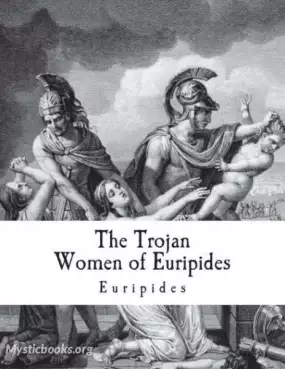
The Trojan Women
The Trojan Women also translated as The Women of Troy, and also known by its transliterated Greek title Troades, is a tragedy by the Greek playwright Euripides. Produced in 415 BC during the Peloponnesian War, it is often considered a commentary on t...
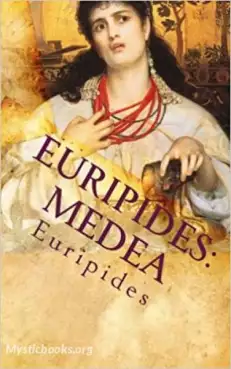
Medea
Medea is an ancient Greek tragedy written by Euripides, based upon the myth of Jason and Medea and first produced in 431 BC. The plot centers on the actions of Medea, a former princess of the " kingdom of Colchis, and the wife of Jason; she finds her...

Alcestis
Alcestis or Alceste, was a princess in Greek mythology, known for her love of her husband. Her life story was told by pseudo-Apollodorus in his Bibliotheca, and a version of her death and return from the dead was also popularized in Euripides's trage...
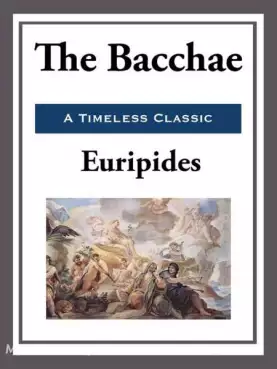
The Bacchae
The Bacchae is an ancient Greek tragedy, written by the Athenian playwright Euripides during his final years in Macedonia, at the court of Archelaus I of Macedon. It premiered posthumously at the Theatre of Dionysus in 405 BC as part of a tetralogy t...
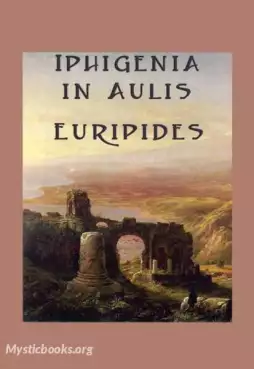
Iphigenia in Aulis
Iphigenia in Aulis or Iphigenia at Aulis is the last of the extant works by the playwright Euripides. Written between 408, after Orestes, and 406 BC, the year of Euripides' death, the play was first produced the following year in a trilogy with The B...
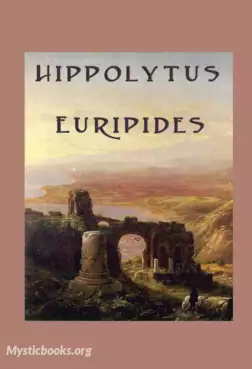
Hippolytus
Hippolytus is an Ancient Greek tragedy by Euripides, based on the myth of Hippolytus, son of Theseus. The play was first produced for the City Dionysia of Athens in 428 BC and won first prize as part of a trilogy.

Trojan Women (Murray Translation)
Euripides' *Trojan Women* is a poignant and powerful Greek tragedy that explores the aftermath of the Trojan War. It focuses on the suffering of the Trojan women, including Hecuba, Andromache, and Cassandra, as they are forced into slavery and endure...

Iphigenie in Aulis
Iphigenia in Aulis is a tragedy by the ancient Greek playwright Euripides. It tells the story of the sacrifice of Iphigenia, the daughter of Agamemnon, the leader of the Greek army, in order to appease the goddess Artemis and ensure favorable winds f...
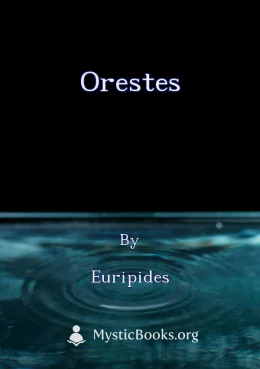
Orestes
Orestes, a young prince, kills his mother in revenge for the murder of his father. Tormented by guilt, he seeks redemption but is pursued by the Furies, who represent the vengeance of the gods. As he tries to escape his fate, Orestes must confront hi...

Iphigenia in Aulis (Way translation)
Iphigenia in Aulis is a Greek tragedy written by Euripides, exploring the moral complexities of sacrifice and duty in the context of the Trojan War. The play centers around the decision of Agamemnon, the Greek leader, to sacrifice his daughter Iphige...
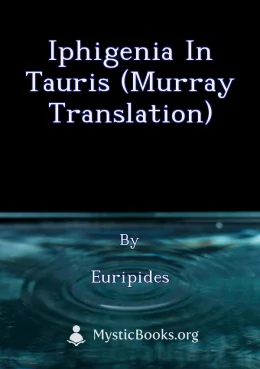
Iphigenia in Tauris (Murray Translation)
In the ancient land of Tauris, Iphigenia, daughter of Agamemnon, presides over the barbaric ritual of human sacrifice as the priestess of the goddess Artemis. Unbeknownst to her, her long-lost brother Orestes and his friend Pylades arrive on the shor...

Electra (Murray Translation)
Euripides' *Electra* is a powerful and moving reimagining of the classic Greek myth. It delves into the complex themes of revenge, family, and the influence of fate. Electra, consumed by hatred for her mother Clytemnestra and stepfather Aegisthus, ye...

Trojan Women (Coleridge Translation)
The Trojan Women, a tragedy by the Greek playwright Euripides, is a poignant portrayal of the aftermath of the Trojan War. It focuses on the suffering of the women left behind in Troy, including Hecuba, Andromache, and Cassandra, as they face the co...

Alcestis (Way Translation)
Euripides' *Alcestis* is a powerful and moving tragedy exploring themes of love, sacrifice, and the nature of mortality. Alcestis, a virtuous queen, chooses to die in place of her husband, Admetus, the King of Pherae. The play delves into the comple...
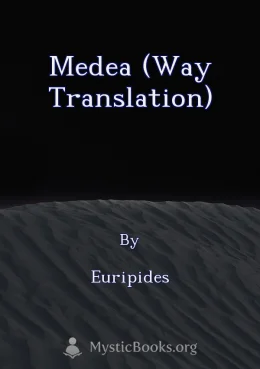
Medea (Way Translation)
Medea, a powerful sorceress, is abandoned by her husband Jason, the famous Argonaut, for a Greek princess. Driven by a potent mix of rage and grief, she orchestrates a devastating revenge, sacrificing her own children to punish Jason and his new bri...

Bacchanals
Euripides' *Bacchae* is a powerful Greek tragedy that delves into the consequences of defying the gods. The play centers on the conflict between King Pentheus of Thebes and Dionysus, the god of wine and revelry. Dionysus, seeking revenge for the disr...

Andromache
Andromache, the widow of the Trojan hero Hector, finds herself a captive of the Greek hero Neoptolemus after the fall of Troy. Forced to live in a foreign land, she bears him a son. However, Neoptolemus marries Hermione, the daughter of Menelaus an...